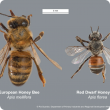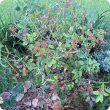Filter by regions:
- South West (1257) Apply South West filter
- Great Southern (1215) Apply Great Southern filter
- Wheatbelt (1016) Apply Wheatbelt filter
- Mid West (989) Apply Mid West filter
- Peel (966) Apply Peel filter
- Goldfields-Esperance (897) Apply Goldfields-Esperance filter
- Perth regions (796) Apply Perth regions filter
- Gascoyne (736) Apply Gascoyne filter
- Kimberley (652) Apply Kimberley filter
- Pilbara (610) Apply Pilbara filter








